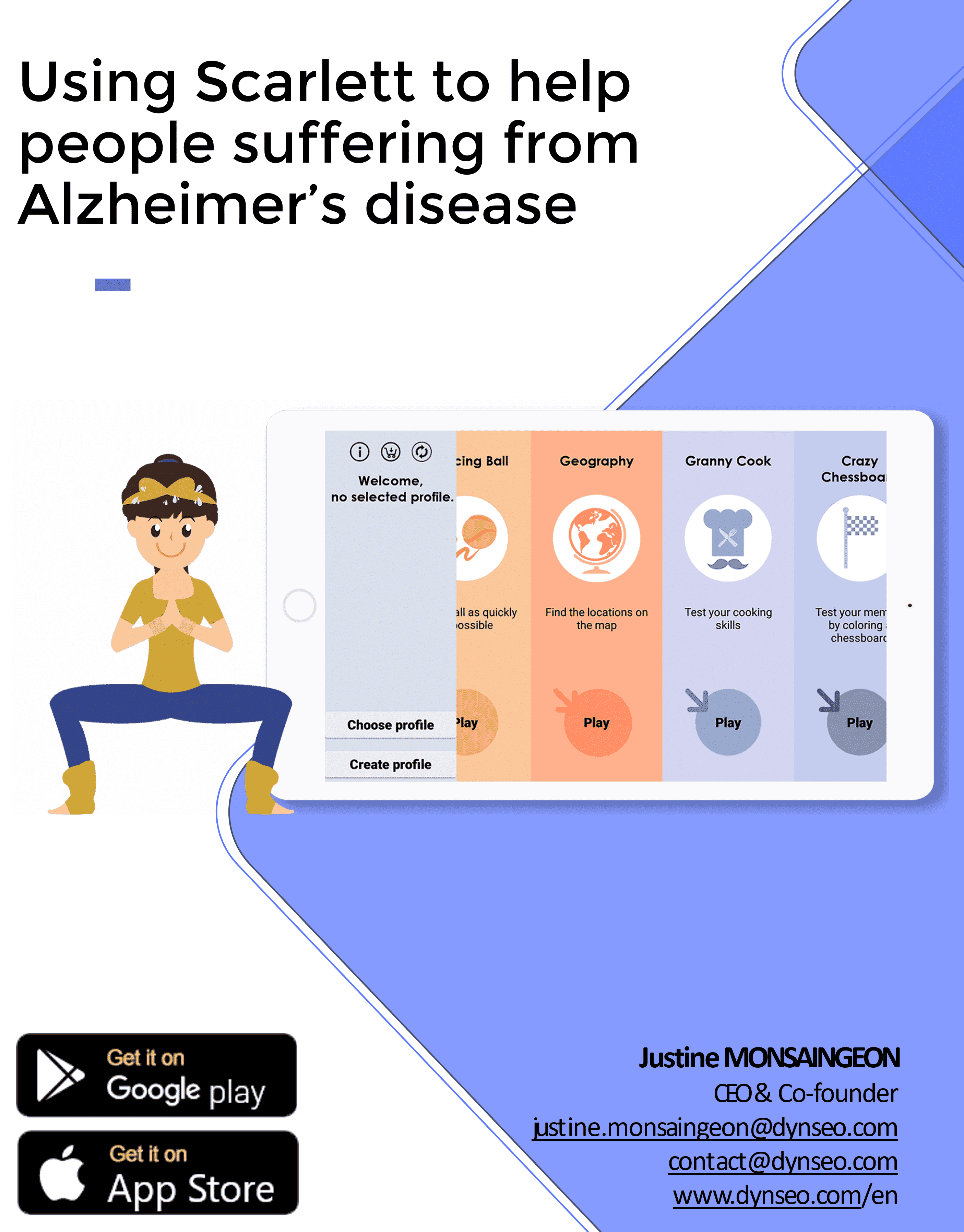Alzheimer’s disease is a progressive neurological disorder that primarily affects memory, thinking, and behavior. As we navigate through the complexities of this condition, we come to understand that it not only impairs cognitive functions but also significantly impacts communication abilities. Individuals with Alzheimer’s often experience difficulties in finding the right words, forming coherent sentences, and following conversations.
This deterioration in speech can lead to frustration for both the patients and their caregivers, as the ability to express thoughts and emotions becomes increasingly compromised. The gradual decline in language skills can create a barrier to social interaction, leading to feelings of isolation and loneliness for those affected. Moreover, the impact of Alzheimer’s on speech extends beyond mere vocabulary loss; it can also affect the rhythm and tone of speech.
Patients may speak more slowly or may struggle with articulation, making it challenging for them to convey their thoughts effectively. As we observe these changes, it becomes evident that communication is not just about words; it encompasses non-verbal cues, emotional expressions, and the ability to engage in meaningful conversations. The loss of these skills can significantly alter relationships with family members and friends, as conversations become strained and less fulfilling.
Understanding these nuances is crucial for developing effective interventions that can help maintain communication skills for as long as possible.
The Importance of Speech Therapy for Alzheimer’s Patients
Speech therapy plays a vital role in supporting individuals with Alzheimer’s disease as they navigate the challenges associated with communication decline. Through targeted interventions, speech therapists can help patients improve their language skills, enhance their ability to express themselves, and maintain social connections. Engaging in speech therapy not only aids in preserving existing communication abilities but also fosters a sense of dignity and self-worth among patients.
By providing them with tools and strategies to articulate their thoughts, we empower them to participate more fully in conversations and social interactions, which can significantly enhance their quality of life. Additionally, speech therapy can be tailored to meet the unique needs of each patient, taking into account their specific challenges and preferences. This personalized approach allows therapists to focus on functional communication skills that are relevant to the patient’s daily life.
For instance, therapy may involve practicing everyday conversations, using visual aids, or employing memory strategies to help patients recall important words or phrases. As we engage in this therapeutic process, we not only work on improving speech but also create an environment that encourages social engagement and emotional connection. The importance of speech therapy cannot be overstated; it serves as a lifeline for individuals with Alzheimer’s, helping them navigate the complexities of communication in a world that often feels increasingly distant.
Introduction to Cognitive Apps for Speech Therapy

In recent years, the advent of technology has opened new avenues for enhancing speech therapy for individuals with Alzheimer’s disease. Cognitive apps designed specifically for speech therapy have emerged as valuable tools that can complement traditional therapeutic approaches. These applications leverage interactive features and engaging content to create a stimulating environment for users, making the process of improving communication skills both enjoyable and effective.
By integrating technology into therapy sessions, we can provide patients with opportunities to practice their speech in a safe and supportive setting. One such app is Scarlett, which is tailored for seniors and focuses on cognitive stimulation through various brain games. Scarlett offers a range of activities that target language skills, memory retention, and cognitive flexibility.
By utilizing this app, we can encourage patients to engage in regular practice outside of formal therapy sessions, reinforcing the skills they are working on with their therapists. The convenience and accessibility of cognitive apps like Scarlett make them an appealing option for caregivers and healthcare professionals seeking innovative ways to support individuals with Alzheimer’s in maintaining their communication abilities.
How Cognitive Apps Support Speech Therapy for Alzheimer’s Patients
Cognitive apps provide a unique platform for enhancing speech therapy by offering interactive exercises that cater specifically to the needs of Alzheimer’s patients. These applications often include a variety of games and activities designed to stimulate cognitive functions while simultaneously addressing language skills. For instance, users may engage in word-finding exercises or sentence construction tasks that challenge them to think critically about their language use.
This interactive approach not only makes learning more enjoyable but also encourages consistent practice, which is essential for reinforcing newly acquired skills. Furthermore, cognitive apps can be particularly beneficial in promoting independence among Alzheimer’s patients. By allowing users to practice at their own pace and on their own schedule, these applications empower individuals to take charge of their learning process.
This autonomy can lead to increased motivation and a sense of accomplishment as they see tangible improvements in their communication abilities. Additionally, many cognitive apps come equipped with progress tracking features that allow both patients and caregivers to monitor advancements over time. This data-driven approach provides valuable insights into areas of strength and those requiring further attention, enabling us to tailor interventions more effectively.
Advantages of Using Cognitive Apps in Speech Therapy
The integration of cognitive apps into speech therapy offers numerous advantages that can significantly enhance the therapeutic experience for Alzheimer’s patients. One of the most notable benefits is the ability to provide personalized learning experiences tailored to individual needs. With a wide range of activities available within these apps, therapists can select specific exercises that align with each patient’s unique challenges and goals.
This customization ensures that therapy remains relevant and engaging, ultimately leading to better outcomes. Moreover, cognitive apps often incorporate gamification elements that make learning fun and motivating. By transforming traditional exercises into interactive games, patients are more likely to engage consistently with the material.
This increased engagement can lead to improved retention of language skills and greater overall satisfaction with the therapeutic process. Additionally, many cognitive apps are designed with user-friendly interfaces that cater specifically to seniors, ensuring that they can navigate the technology with ease. This accessibility further enhances the appeal of cognitive apps as valuable tools in speech therapy.
Challenges and Limitations of Cognitive Apps in Speech Therapy

While cognitive apps present exciting opportunities for enhancing speech therapy for Alzheimer’s patients, it is essential to acknowledge the challenges and limitations associated with their use. One significant concern is the potential for technology-related barriers that may hinder some patients from fully benefiting from these applications. For instance, individuals who are not familiar with smartphones or tablets may struggle to navigate the app interface effectively.
This lack of familiarity can lead to frustration and disengagement from the therapeutic process. Additionally, while cognitive apps can provide valuable support, they should not be viewed as a replacement for traditional speech therapy. The human connection established between therapists and patients is irreplaceable; it fosters trust and understanding that cannot be replicated through technology alone.
Therefore, it is crucial for us to strike a balance between utilizing cognitive apps as supplementary tools while ensuring that patients continue to receive personalized care from qualified professionals. By recognizing these limitations, we can work towards creating a comprehensive approach that combines the best of both worlds.
Tips for Integrating Cognitive Apps into Speech Therapy for Alzheimer’s Patients
To maximize the benefits of cognitive apps in speech therapy for Alzheimer’s patients, we must consider several key strategies for effective integration. First and foremost, it is essential to involve patients in the selection process by allowing them to choose activities that resonate with their interests and preferences. This sense of ownership can enhance motivation and engagement during practice sessions.
Additionally, caregivers should be encouraged to participate alongside patients when using these apps; this collaborative approach fosters social interaction and provides opportunities for meaningful conversations. Another important tip is to establish a consistent routine for app usage within the context of therapy sessions or daily activities. By setting aside dedicated time for practice, we create a structured environment that reinforces learning while also promoting accountability.
It may also be beneficial to incorporate progress tracking features available within many cognitive apps; this allows both patients and caregivers to celebrate achievements together and identify areas where additional support may be needed. Ultimately, by thoughtfully integrating cognitive apps into speech therapy practices, we can create a holistic approach that enhances communication skills while nurturing emotional connections.
Future Developments and Potential Impact of Cognitive Apps in Speech Therapy
As technology continues to evolve at an unprecedented pace, we can anticipate exciting developments in the realm of cognitive apps designed for speech therapy. Future innovations may include enhanced artificial intelligence capabilities that allow apps to adapt dynamically based on user performance and preferences. Such advancements could lead to even more personalized learning experiences tailored specifically to each patient’s unique needs.
Additionally, we may see increased collaboration between app developers and healthcare professionals, resulting in evidence-based applications grounded in clinical research. The potential impact of these developments on speech therapy for Alzheimer’s patients is profound. As cognitive apps become more sophisticated and user-friendly, they will likely play an increasingly central role in therapeutic interventions.
By bridging the gap between traditional therapy methods and modern technology, we can create a comprehensive support system that empowers individuals with Alzheimer’s disease to maintain their communication abilities for as long as possible. Ultimately, our commitment to exploring innovative solutions will pave the way for improved outcomes and enhanced quality of life for those affected by this challenging condition.
In exploring the benefits of cognitive apps for Alzheimer’s patients, it’s also crucial to understand the broader context of cognitive health and interventions. A related article that delves into the development of language skills, which is fundamental in speech therapy, can be found at Sviluppo del Linguaggio. This article provides insights into how language skills are developed and maintained, which is particularly relevant when considering therapeutic approaches for Alzheimer’s patients. Understanding these foundational aspects can enhance the effectiveness of using cognitive apps in speech therapy, offering a more comprehensive approach to patient care.



